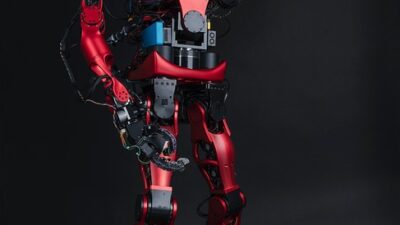In the modern age of technology, few innovations have proven as transformative as deep learning. As a subset of artificial intelligence (AI) and machine learning (ML), deep learning was inspired by the structure and function of the human brain, utilizing neural networks to process vast amounts of data. This powerful framework is revolutionizing industries across the globe, enhancing efficiency, accuracy, and decision-making processes. In this article, we will explore how deep learning is reshaping various sectors and what the future holds for this groundbreaking technology.
1. Healthcare: A New Era of Diagnostics
Deep learning has the potential to revolutionize healthcare by improving diagnostic accuracy and personalizing treatment plans. Algorithms can analyze medical images like X-rays, MRIs, and CT scans faster and often more accurately than human radiologists. For instance, Google’s DeepMind developed a model that can diagnose eye diseases from retinal scans, achieving an accuracy level comparable to that of expert clinicians.
Moreover, deep learning is enhancing genomics and drug discovery processes. By analyzing vast datasets from genetic research, it can identify patterns and connections that lead to new treatments and therapies. Predictive analytics powered by deep learning can also assess patient history and suggest preventative measures, paving the way for personalized medicine and improving patient outcomes.
2. Finance: Risk Management and Fraud Detection
In the finance sector, deep learning algorithms are reshaping how institutions manage risk, assess creditworthiness, and detect fraudulent activities. Traditional methods of data analysis often fail to capture the complexity and nuances of financial transactions. However, deep learning models can analyze unstructured data, such as social media sentiment and transaction patterns, providing insights that enhance decision-making.
For instance, companies like PayPal and Mastercard utilize deep learning to detect anomalies in transaction data, identifying potentially fraudulent activities in real-time. Additionally, deep learning models improve credit scoring systems by predicting outcomes more accurately based on a multitude of factors. This leads to reduced risks for lenders and greater access to credit for consumers.
3. Retail: Enhancing the Customer Experience
Deep learning is fundamentally changing the retail landscape by enabling personalized shopping experiences and optimizing inventory management. Retailers are leveraging algorithms to analyze consumer behavior, preferences, and past purchase data to create individualized recommendations. Companies like Amazon and Alibaba utilize this technology to enhance user engagement and increase sales conversion rates.
Inventory management is another area where deep learning proves beneficial. By forecasting demand more accurately, retailers can reduce excess inventory and stockouts, leading to significant cost savings. Techniques such as demand forecasting and dynamic pricing optimize the supply chain, ensuring that products are available when and where consumers need them.
4. Transportation: The Rise of Autonomous Vehicles
The transportation industry is poised for a seismic shift thanks to deep learning, particularly in the development of autonomous vehicles. Companies like Tesla, Waymo, and Uber are investing heavily in deep learning technologies to create self-driving cars capable of navigating complex environments.
Deep learning algorithms process data from LiDAR, radar, cameras, and other sensors to interpret surroundings, make real-time decisions, and improve safety. As these systems learn from vast amounts of driving data, they become better at predicting and responding to various driving scenarios, potentially reducing accidents and improving traffic flow.
5. Manufacturing: Smart Factories and Predictive Maintenance
Deep learning is catalyzing the evolution of "smart factories" by integrating AI with traditional manufacturing processes. Machine vision systems powered by deep learning can detect defects in products on the assembly line, ensuring higher quality control and reducing waste.
Moreover, deep learning is instrumental in predictive maintenance. By analyzing data from machinery, these algorithms can predict when equipment is likely to fail or need servicing, minimizing downtime and maintenance costs. This proactive approach not only increases operational efficiency but also extends the lifespan of machinery.
Conclusion: A Collaborative Future
As deep learning continues to advance, its applications will expand, affecting virtually every industry. Collaborations between AI experts, business leaders, and policymakers will be crucial in addressing challenges such as ethical considerations, data privacy, and workforce displacement. Ensuring that these technologies are leveraged responsibly will be essential for fostering innovation while safeguarding societal interests.
In summary, deep learning is no longer a futuristic concept; it is a powerful tool that is already transforming industries today. As we continue to unveil its potential, we stand on the brink of a new era marked by enhanced efficiency, greater accuracy, and better decision-making processes that promise to improve our quality of life. The future of deep learning is not just about technology; it is about better solutions for the challenges we face in our world.



